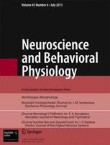|
Anapafseos 5 Agios Nikolaos 72100,Crete,Greece,00302841026182,00306932607174,alsfakia@gmail.com
Blog Archive
- ► 2022 (3010)
- ► 2021 (9899)
-
▼
2020
(4138)
-
▼
November
(1979)
-
▼
Nov 22
(100)
- Evaluating the Relationship Between Post Traumatic...
- Fixed full‐arch maxillary prostheses supported by ...
- Long‐term crestal bone changes in implants placed ...
- Thermal effects of various drill materials during ...
- The comparative evaluation of transcrestal and lat...
- Case and Review: Cutaneous Involvement by Chronic ...
- Piperine protects against pyroptosis in myocardial...
- Hypoxic bone marrow mesenchymal cell‐extracellular...
- CircSAMD4A aggravates H/R‐induced cardiomyocyte ap...
- Immunoexpression of BDNF, TrkB and p75NTR receptor...
- RhoA/ROCKs signalling is increased by treatment wi...
- miRNA for the assessment of lymph node metastasis ...
- High expression of novel biomarker KRT16P3 promote...
- Tacrolimus 0.03% ointment treatment in exfoliative...
- Elective neck dissection in primary parotid carcin...
- Malocclusion in individuals with osteogenesis impe...
- Hyalomma anatolicum resistance against ivermectin ...
- Two case reports of Mycobacterium marinum infectio...
- Successful treatment of acne fulminans with the co...
- The curious case of IL‐33 in homeostasis and infec...
- A novel c.916C>A EDA gene pathogenic variant in a ...
- Successful treatment of highly refractory Necrobio...
- Shared internal models for feedforward and feedbac...
- Reward does not modulate corticospinal excitabilit...
- European Society of Anaesthesiology Guidelines on ...
- The analgesic effectiveness of ilioinguinal-iliohy...
- Incidence of postoperative sore throat after using...
- Prolonged postoperative cerebral oxygen desaturati...
- Prediction of fluid responsiveness using lung recr...
- Home-Initiated-Programme-to-Prepare-for-Operation:...
- Opioid-sparing effect of modified intercostal nerv...
- Clinical and laboratory signs of haemophagocytic l...
- The effect of immediate postoperative Boussignac C...
- Ultrasound-guided quadratus lumborum block for pos...
- Which is good for pre-operative anxiety? Midazolam...
- Effects of Preoperative Gum Chewing on Sore Throat...
- Opioid-Sparing Cardiac Anesthesia: Secondary Analy...
- An Observational Study of the Pharmacokinetics of ...
- Transversus Abdominis Plane Block With Liposomal B...
- Clinical Uses and Impacts of Emergency Manuals Dur...
- A Forensic Disassembly of the BIS Monitor
- A Systematic Review and Meta-analysis of Clinical ...
- Derivation, Validation, Sustained Performance, and...
- Association of Anesthesiologist Handovers With Sho...
- Perioperative Lung Protection: General Mechanisms ...
- Musculoskeletal Trauma in Critically Injured Patie...
- Perioperative Cardioprotection: General Mechanisms...
- Perioperative Cardioprotection: Clinical Implications
- Disease Mechanisms of Perioperative Organ Injury
- Perioperative Lung Protection: Clinical Implications
- Ambition for Self and for Specialty: Emery A. Rove...
- Targeting Endothelial Dysfunction in Acute Critica...
- Trends and Outcomes in Pediatric Patients Undergoi...
- Systemic Inflammatory Response Syndrome After Surg...
- Perioperative Renoprotection: General Mechanisms a...
- Perioperative Renoprotection: Clinical Implications
- Perioperative Management of Children on Ketogenic ...
- An Implementation-Effectiveness Study of a Periope...
- Similarly low risk of hepatocellular carcinoma aft...
- Review article: current gaps and opportunities in ...
- Ex vivo infection of murine precision-cut lung tis...
- First‐line cetuximab plus chemotherapy for unresec...
- Comparative Efficacy of Angiotensin II Type 1 Rece...
- Pharmacoenhancement of Low Crizotinib Plasma Conce...
- Iron accumulation in the choroid plexus, ependymal...
- The Glasgow Microenvironment Score associates with...
- A case-control study to evaluate the impact of the...
- Cysteine metabolic circuitries: druggable targets ...
- Tumour‐only sequencing for oncology management: ge...
- Analysis of Mutational Signatures with YAPSA (Yet ...
- Extended cubic B‐spline collocation method for sin...
- Moving the dial on prenatal stress mechanisms of n...
- Are We Ready for Bariatric Surgery in a Liver Tran...
- Extramedullary Hematopoiesis in Adrenal Incidental...
- Efficacite et innocuite des agents antiviraux cont...
- Mortality among patients with frequent emergency d...
- Genomic Destabilization and its Associated Mutagen...
- NQO1 promotes an aggressive phenotype in hepatocel...
- Tick species from Africa by migratory birds: a 3-y...
- Finding incident cancer cases through outpatient o...
- Revisiting thoracic kyphosis: a normative descript...
- Comparative Analysis of Indicators of the Early St...
- Clinical Genetic Characteristics of Epilepsy Due t...
- EEG Characteristics during Short-Term Spontaneous ...
- Cross-Correlation and Coherence Analysis of Electr...
- Absorbed dose simulation of meta - 211 At-astato-b...
- Evaluation of different airway tests to determine ...
- Provider confidence in the telemedicine spine eval...
- Problems with Early Systematic Reviews: The Case o...
- Incidence, impact and risk factors for multidrug-r...
- Sagittal imbalance and symptoms of depression in a...
- Application of an attention U-Net incorporating tr...
- Evaluating the Relationship Between Post Traumatic...
- Numerical investigation of patient-specific thorac...
- Molecular Cloning and Differential Gene Expression...
- Molecular detection and characterization of tick-b...
- Hyalomma anatolicum resistance against ivermectin ...
- Midterm results of homografts in pulmonary positio...
- Review of acute kidney injury and continuous renal...
- Are We Ready for Bariatric Surgery in a Liver Tran...
-
▼
Nov 22
(100)
-
▼
November
(1979)
- ► 2019 (2429)
Αλέξανδρος Γ. Σφακιανάκης
Sunday, November 22, 2020
EEG Characteristics during Short-Term Spontaneous Waking Periods of Different Durations with Changes in Psychomotor Activity Induced by Falling Asleep
Subscribe to:
Post Comments (Atom)



No comments:
Post a Comment